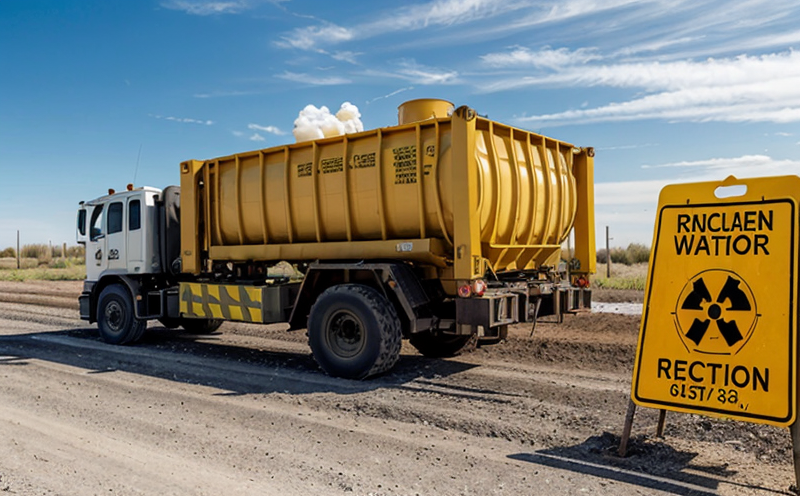IAEA SSG-43 Storage of Radioactive Waste Packages
The International Atomic Energy Agency’s (IAEA) Safety Standards Series General Recommendation No. 43 (SSG-43), titled “Storage of Radioactive Waste Packages,” provides a comprehensive framework for managing radioactive waste packages in a manner that ensures safety and regulatory compliance.
The primary objective of this standard is to ensure the safe storage of radioactive waste, which includes both short-lived and long-lived isotopes. The standard addresses various aspects such as the design, construction, operation, maintenance, and decommissioning of facilities used for storing these packages. It emphasizes the importance of considering environmental impact assessments (EIAs), public safety, and regulatory requirements.
The storage conditions must be designed to prevent the release of radioactive materials into the environment under all operating and accident conditions throughout the storage period. This includes accounting for potential failures in containment systems, transport routes, and the integrity of the waste packages themselves.
A critical aspect of IAEA SSG-43 is its focus on long-term safety considerations. The standard recognizes that the radioactive materials stored may remain hazardous for extended periods, thus requiring robust storage solutions capable of enduring various environmental stressors over time.
Another key component of this standard pertains to the monitoring and assessment of the waste packages during their entire storage lifecycle. This involves regular inspections, condition checks, and documentation to ensure that all safety criteria are being met.
The IAEA’s recommendations cover various types of radioactive waste, including spent fuel from nuclear reactors, medical isotopes, industrial radiations sources, and other hazardous materials. The standard also provides guidance on the design and implementation of storage facilities tailored to specific waste types.
For quality managers, compliance officers, R&D engineers, and procurement personnel, understanding IAEA SSG-43 is crucial for ensuring that radioactive waste packages are stored safely and in accordance with international best practices. Compliance with these standards helps protect the environment and public health while ensuring regulatory adherence.
Why It Matters
The safe storage of radioactive waste is essential for environmental protection, public safety, and compliance with international regulations. The IAEA SSG-43 provides a robust framework to manage this critical aspect of nuclear safety.
- Environmental Protection: Ensures that no harmful substances are released into the environment, safeguarding ecosystems and communities.
- Public Safety: Protects individuals from exposure to radioactive materials by implementing stringent storage protocols.
- Regulatory Compliance: Adheres to international standards set by the IAEA, ensuring that operations are in line with global best practices.
Applied Standards
The International Atomic Energy Agency’s SSG-43 is a cornerstone of nuclear safety and waste management. It is designed to complement other international standards such as ISO/IEC, ASTM, EN, IEC, and others that focus on nuclear technology and radiation protection.
SSG-43 specifically aims at addressing the storage aspects of radioactive waste packages by providing detailed guidance on design, construction, operation, maintenance, and decommissioning. The standard draws upon a wealth of international experience and expertise to ensure comprehensive coverage of all relevant factors.
The application of SSG-43 ensures that facilities are built with durability in mind, capable of enduring various environmental conditions over long periods. This includes considerations for temperature fluctuations, humidity levels, and potential exposure to external stressors like earthquakes or floods.
Why Choose This Test
- Comprehensive Compliance: Ensures strict adherence to international standards for nuclear safety and waste management.
- Environmental Protection: Minimizes the risk of radioactive materials contaminating the environment.
- Public Safety: Protects communities from potential hazards associated with improper storage practices.
- Regulatory Adherence: Meets all necessary regulatory requirements, ensuring smooth operations and avoiding legal issues.





